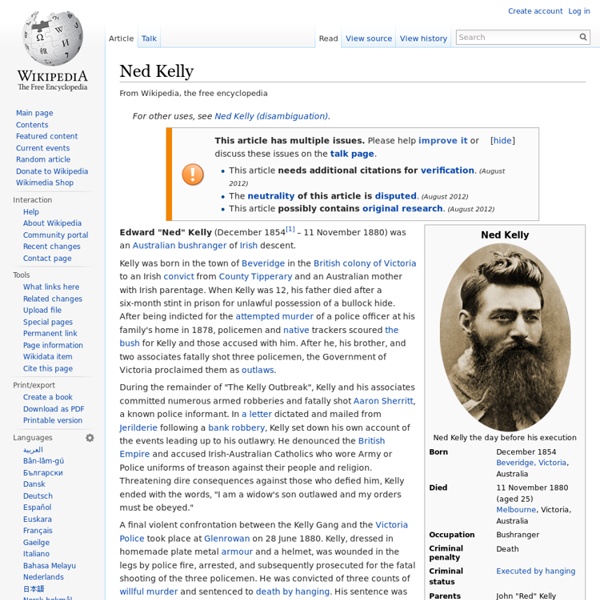Zoom
Trash
Related:



Everyday life In 19th century Melbourne free land was scarce, housing was a problem, and when times got tough, people turned to alcohol. Those who watched the city grow tell the story of how the streets were named, when the first brewery appeared, and how a woman got by in a man's world. The witty observations of an Irish journalist tell the real story of life in Port Phillip. Hard times and economic woes made the lure of alcohol all too tempting for Melbourne's common folk. After some initial problems, Melbourne's city grid became an iconic feature of a rapidly growing town. Melbourne's population in the 1800s reflected the city's growth as a bustling metropolis. Melbourne's city street names link directly to the story of colonial life in Port Phillip. Almost since their arrival, settlers had felt strongly that Port Phillip deserved to be a separate colony. Female convicts and free settlers were a small but important part of Port Phillip's development.
Jerilderie Letter The document known as the Jerilderie Letter was dictated by famous Australian bushranger Ned Kelly to fellow Kelly Gang member Joe Byrne in 1879. It is one of only two original Kelly documents known to have survived.[1] Ned Kelly the day before his execution by hanging in November 1880. The Jerilderie Letter is a 56-page document of approximately 8,000 words. It is a longer and more detailed version of the Cameron/Euroa Letter which Kelly sent to a member of the Victorian Legislative Assembly and the police in December 1878. Two copies were made of Ned Kelly's letter, one by publican John Hanlon and one by a government clerk. Ned Kelly and the Kelly Gang[edit] Cameron/Euroa Letter[edit] On 14 November 1878, the day before the members of the Kelly Gang were outlawed, a Victorian parliamentarian criticised the progress of the police hunt for the gang. On 9 December 1878, the Kelly Gang robbed the National Bank in Euroa, Victoria, after taking hostages at Younghusband's station nearby.
1840 – 1900 | Australia's migration history timeline | NSW Migration Heritage Centre Circular Quay, Charles Percy Pickering, 1871. Courtesy State Library of New South Wales By 1869, there were six colonies in Australia – New South Wales, Tasmania, Western Australia, South Australia, Victoria and Queensland – all settled by British people. These separate colonies all had their own governors, parliaments and systems of government reporting to Britain. As the interior was explored and mapped, squatters and free settlers followed and Aboriginal people were pushed from their homelands. The discovery of gold sent a shock wave through Colonial Australia. Chinese in Lambing Flat riots, December, 1860. Chinamen at work on the gold fields. Immigrant ships brought thousands of people keen to try their luck at the diggings. The Chinese diggers moved from goldfield to goldfield within New South Wales and across the border. Samuel Sweet, Overland telegraph party, J.A.G. Colonial governments sought to free up more land for all these people.